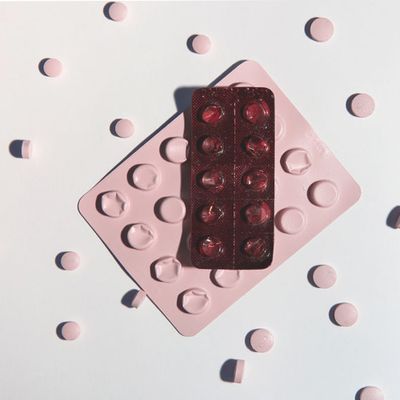
Are We Taking Too Many Antibiotics? SL Finds Out…
Back to basics: what are antibiotics main pros and cons?
The main pro (and key thing to bear in mind) is that they are still vital, and in many cases, lifesaving drugs. But over the years, they have become mistreated, with 32.5m prescribed every year, there is research to show up to 50% could be unnecessary. Another con is they can wipe out not only the bacterial infection they’re being used to attack, but also the body’s healthy bacteria - contributing to widespread antimicrobial resistance (AMR).
So, do they wipe out our healthy bacteria completely?
Research shows that just one course of antibiotics can negatively impact your gut microbiome for up to a year. Just imagine what happens when you’re continually using them beyond one course – it will lead to the depletion of more and more beneficial bacteria. After several cycles, you may even find that you become resistant to their properties and your health is impacted on multiple fronts (including your digestive health). When the good bacteria can no longer perform all their crucial functions, the unwanted bad bacteria can take over, leading to, amongst other things, digestive complaints. Which is why it’s so important to only use them when absolutely necessary.
But when are they considered to be necessary?
Remember antibiotics are a range of powerful drugs which are used to treat diseases and infections caused by bacteria. They cannot treat viral infections, such as colds, flu and coughs. They’ll also need to be prescribed by your doctor who will know when they will work and which one to prescribe for the condition you are experiencing. As a rule, the following conditions are when you should seek out antibiotics:
1. The NHS advises that they should be used where evidence suggests they could significantly speed up recovery (such as a kidney infection).
2. Antibiotics can be prescribed for conditions which aren’t especially serious but are unlikely to clear up on their own (this includes moderately severe acne).
3. It is also advised that they should be used for conditions which are not especially serious but could spread to other people if not treated promptly (such as the skin infection impetigo or the sexually transmitted infection chlamydia).
4. They should be used for conditions which carry a risk of more serious complications (such as cellulitis or pneumonia).
And finally, should we be judging for ourselves if we really need them? And if so, how?
Yes. Before you fill out an antibiotic prescription at the chemist, make sure your doctor has confirmed the need with a lab test. Because so many antibiotics are overprescribed, you want to ensure it’s a necessity before subjecting yourself to the drug’s destructive effects on your carefully balanced microbiome. The good news is that we can all do something ourselves to mitigate against both antibiotic resistance (by only taking antibiotics when necessary) and the effects they have on our gut health by taking care of our microbiome, protecting the delicate digestive tract and the probiotic allies which reside there. Ideally, you should take a high-quality probiotic before you begin your course of antibiotics, but if you aren’t, it’s never too late to start. It is also important to understand that not all probiotics are created equal, so make sure you take one which is clinically studied and proven, I recommend Alflorex.
For more information and advice on taking antibiotics, visit Nhs.uk
DISCLAIMER: We endeavour to always credit the correct original source of every image we use. If you think a credit may be incorrect, please contact us at info@sheerluxe.com.







